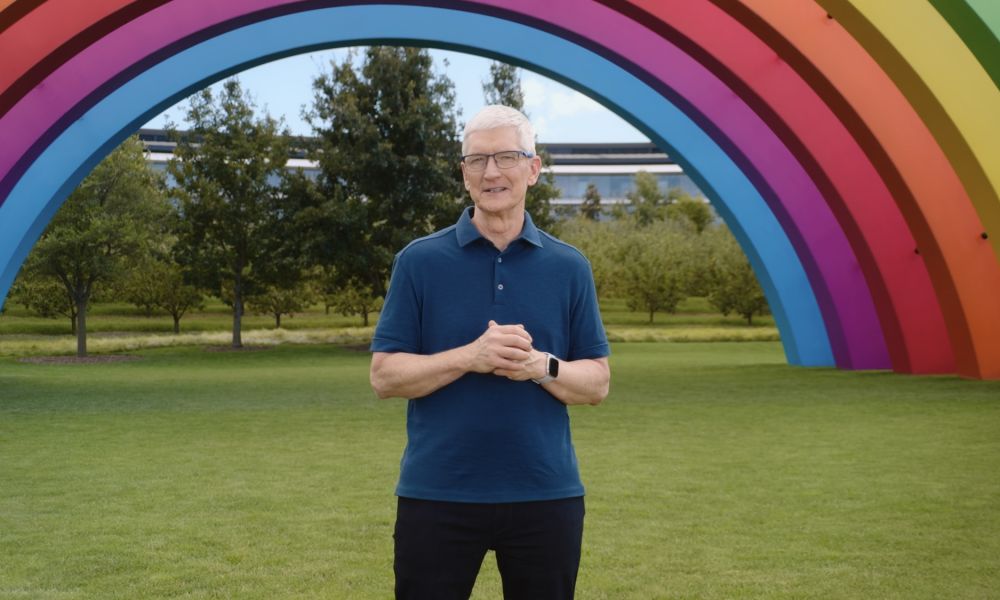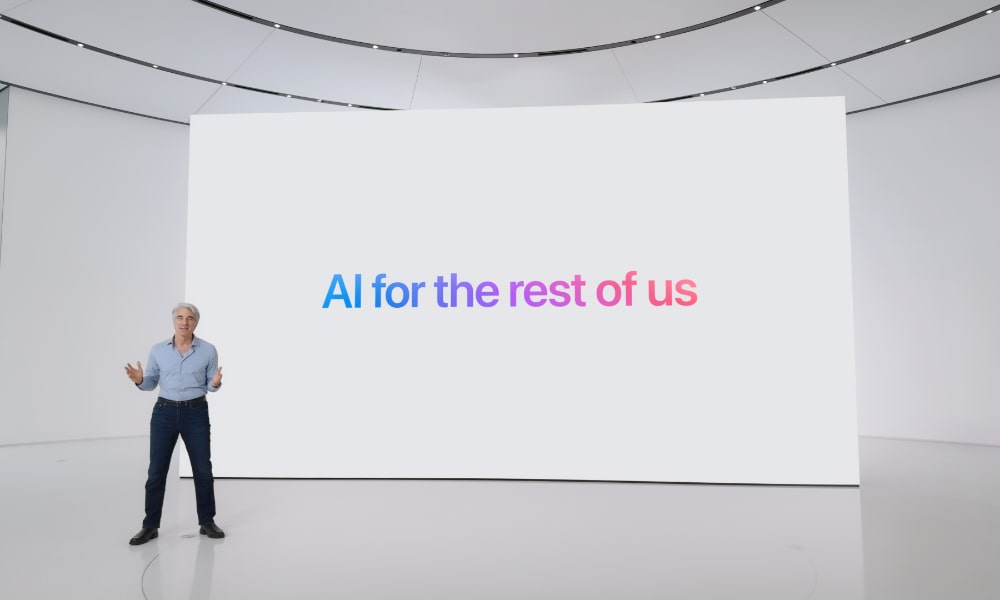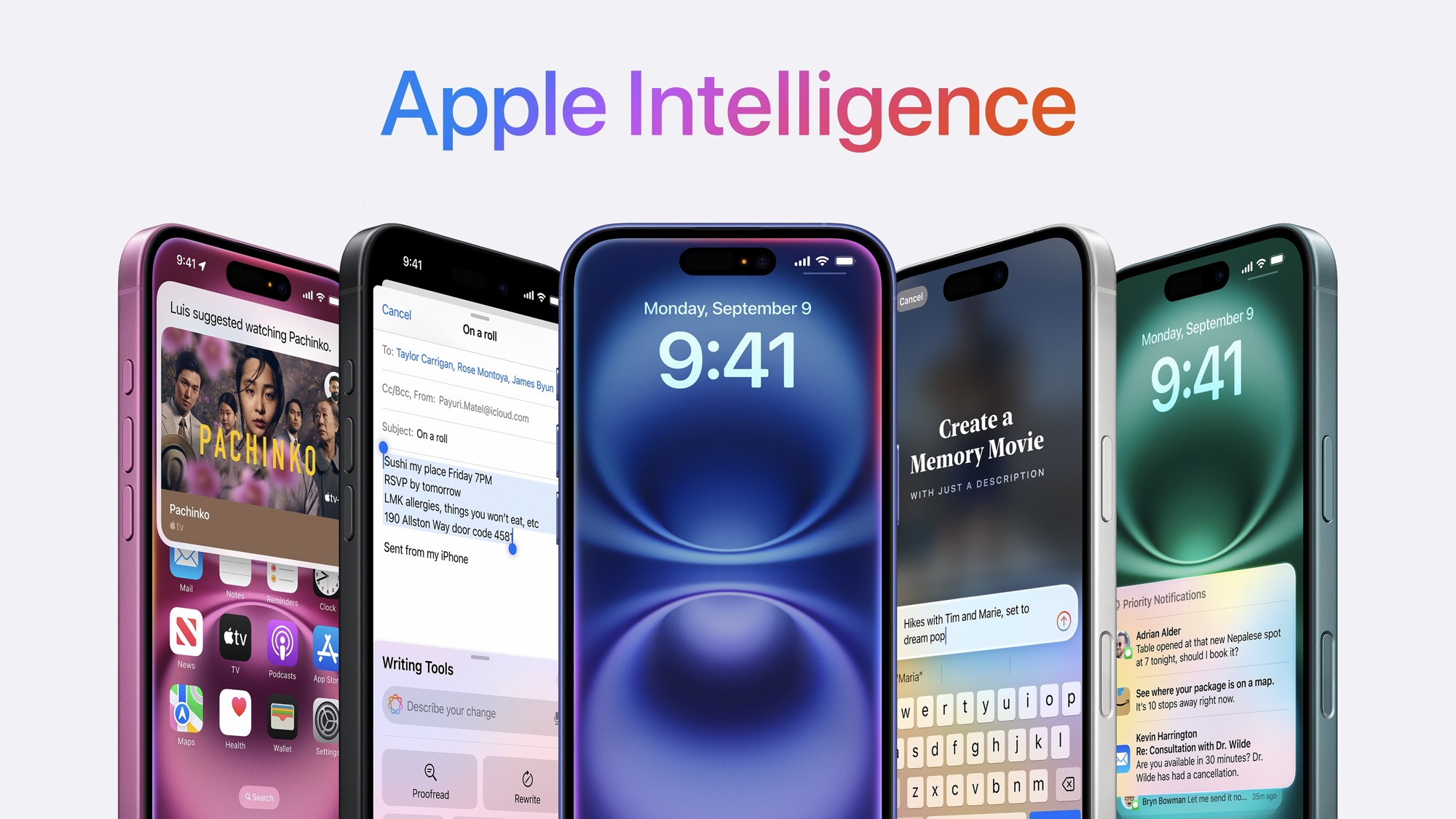Cook Says Charging for Apple Intelligence Wasn’t on the Table

Toggle Dark Mode
Not long after Apple Intelligence debuted at Apple’s June Worldwide Developers Conference (WWDC), analysts and pundits began predicting the company would eventually find a way to turn it into another services revenue stream. However, it seems that was the farthest thing from the minds of Apple’s executives.
In early July, Bloomberg’s Mark Gurman weighed in to suggest that a paid tier of Apple Intelligence was inevitable and that his sources had suggested the company’s long-term plan was to create an “Apple Intelligence+” plan:
There’s an opportunity to turn AI features and other software into paid services, but it will take time. Though Apple Intelligence will be free to start, the long-term plan is to make money off the capabilities. The company could eventually launch something like “Apple Intelligence+” — with extra features that users pay monthly fees for, just like iCloud.
Mark Gurman
In August, Counterpoint Research partner Neil Shah even put a dollar amount on it, telling CNBC that he believed Apple could charge up to $20 per month for it as a separate service. However, he felt the company would likely bundle it into Apple One for a lower price. Shah went so far as to suggest that Apple was only offering Apple Intelligence for free in iOS 18 to lock them in before hitting them with a subscription fee, getting them addicted to the AI features like a drug dealer offering free crack samples.
While other analysts speaking with CNBC didn’t take quite as dark a view of Apple’s motivations, they generally concurred that Apple is ultimately in the business of selling services. It’s already made its iPhone customers comfortable with paying subscriptions for premium services, and as far as they’re concerned, Apple Intelligence is just the next step in that game.
After all, if Google, Microsoft, and OpenAI can all charge for their AI services, it would be silly for Apple not to cash in, right?
Apple Thinks Differently

Well, as we explained at the time, that’s not necessarily how Apple rolls. While there are exceptions, most of Apple’s subscription services are content-based. Apple Music, Apple TV+, Apple Arcade, Apple News+, and even Apple Fitness+ are all about delivering creative content; whether that’s licensed (Music and News), created by Apple’s partners (TV and Arcade), or produced directly by Apple (Fitness), customers are paying for something much more tangible than just a feature.
The subscription services that aren’t explicitly content-based, iCloud+ and AppleCare+, still offer value-added services. While Apple’s 5GB of free iCloud storage gets more laughable with each passing year, storage is still tangible, while AI is ethereal.
On the other hand, Apple is still giving away its satellite features despite the hundreds of millions of dollars it has invested in launching its own satellite constellation. What began as the lifesaving Emergency SOS via satellite has expanded into Roadside Assistance and even Messaging via satellite.

Apple has reserved the right to start charging for these features by offering them free for a limited time with the purchase of a new iPhone. It’s been over two years since they launched, and Apple has guaranteed they’ll be free until at least late 2025. Even after that, features like Emergency SOS via satellite will likely remain free, as it would be a bad look for Apple if somebody were denied emergency assistance because they hadn’t paid their bill.
When it comes to Apple Intelligence, the company hasn’t even hinted that there will be an associated charge, and Apple’s Chief Executive has recently shared why.
In an interview with Wired earlier this month that was highlighted today by 9to5Mac, Apple CEO Tim Cook was pointedly asked by Steven Levy whether he considered charging for AI-enhanced services like other companies. Cook’s response? They never even talked about it.
We never talked about charging for it. We view it sort of like multitouch, which enabled the smartphone revolution and the modern tablet.
Tim Cook
According to Cook, Apple sees its AI features as integral to the experience as multitouch was on the original iPhone. We take that for granted 17 years later, but as someone who used smartphones and PDAs for a decade before the iPhone, I can assure you that it was indeed mind-blowingly revolutionary.
The fact that Cook sees Apple Intelligence in the same light speaks volumes about how it views AI. This isn’t something Apple is adding to the iPhone, but rather how it views the future of its entire platform. While it’s sad that a few older iPhones have been left behind, Apple has done a remarkable job of supporting every Mac and most iPads released in the past four years, and there’s every indication we’ll never see another device from the company that doesn’t support Apple Intelligence. Even the lower-end iPhone SE and iPad are expected to be on board when they launch next year.

Apple has long considered it anathema to charge extra for features built into an iPhone. From the start, its App Review Guidelines have explicitly prohibited third-party developers from charging for access to features already “provided by the hardware or operating system.” This includes everything from camera access to Push Notifications, so there’s no reason Apple Intelligence wouldn’t be included.
Reading between the lines, Cook’s comments don’t specifically rule out some of the earlier predictions. While it’s extremely unlikely that Apple plans to pull the rug out from under its users by turning its entire AI suite into a paid subscription, there’s still room for Gurman’s suggestion that a premium tier could someday materialize beyond what Apple Intelligence offers today. Never say never, as the old saying goes, but according to Cook, that doesn’t appear to be on the roadmap — and it’s probably fair to say that Apple Intelligence has a long way to go before that’s even worth talking about.
Of course, Apple is in a position that most of its competitors aren’t. Services revenue may be on the rise, but Apple’s hardware business still overshadows it, and the iPhone still makes up almost half of the company’s annual revenue. For OpenAI, ChatGPT is the product, and while Google and Microsoft have their Pixel and Surface devices, those represent a fraction of the smartphones, tablets, and PCs running Android and Windows — and therefore Gemini and CoPilot.
Apple Intelligence runs on hardware made by one company, and Apple doesn’t want to sell you Apple Intelligence; it wants to sell you an iPhone, iPad, or Mac. Apple Intelligence is just one of the many features of those devices that Apple hopes will give it a competitive edge. Still, at the end of the day you’re already paying for Apple Intelligence — it’s built into the price of your iPhone.







